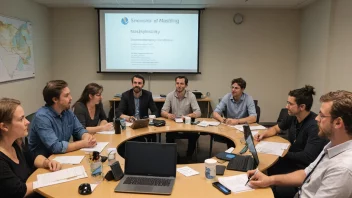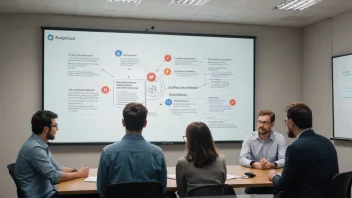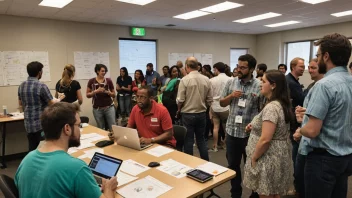Introduction
The open source community ecosystem is a vibrant and collaborative environment where developers, users, and enthusiasts come together to create, share, and improve software. This article aims to address common questions about open source, its significance, and how it operates.
What is open source software?
Open source software is software whose source code is made available to the public for use, modification, and distribution. This transparency encourages collaboration and innovation, allowing developers to enhance the software collectively.
Why is open source important?
Open source is important for several reasons:
- Collaboration: It fosters a collaborative environment where individuals can contribute to projects, leading to rapid development.
- Transparency: Users can inspect the code for vulnerabilities, ensuring better security and trust.
- Cost-effectiveness: Many open source projects are free to use, reducing costs for individuals and organizations.
- Community support: Users often benefit from a community of developers who provide support and share knowledge.
How does the open source community operate?
The open source community operates through various platforms and methodologies, including:
- Version Control Systems: Tools like GitHub allow developers to manage changes to code and collaborate efficiently.
- Documentation: Clear documentation is essential for users and contributors to understand how to use and contribute to projects.
- Contribution Guidelines: Most projects have guidelines that outline how individuals can contribute, ensuring a structured approach.
- Licenses: Open source software is usually distributed under licenses that dictate how it can be used and modified.
What are some popular open source projects?
There are numerous well-known open source projects that have had a significant impact on technology:
- Linux: An open-source operating system kernel that is widely used in servers, desktops, and embedded systems.
- Apache HTTP Server: A widely-used web server software that powers a large portion of the internet.
- Mozilla Firefox: An open-source web browser that emphasizes privacy and user control.
- WordPress: A popular content management system (CMS) that powers a significant percentage of websites globally.
How can I get involved in the open source community?
Getting involved in the open source community can be rewarding. Here are some steps to start:
- Choose a project: Identify a project that interests you and matches your skill level.
- Join forums and discussions: Engage with the community through forums, mailing lists, or chat platforms like Discord or Slack.
- Start small: Begin with small contributions, such as fixing bugs or improving documentation.
- Attend events: Participate in conferences, meetups, or hackathons to connect with other contributors.
What are the challenges of open source development?
While the open source ecosystem is thriving, it faces several challenges:
- Funding: Many open source projects rely on donations or sponsorships, leading to financial instability.
- Management: Coordinating contributions from various developers can be challenging and requires effective project management.
- Maintaining quality: Ensuring that contributions meet quality standards can be difficult, especially with large projects.
What is the future of the open source community?
The future of the open source community looks promising, with trends indicating:
- Increased adoption: More organizations are recognizing the value of open source in their operations.
- Enhanced collaboration: Platforms that facilitate collaboration will continue to evolve, making it easier for developers to contribute.
- Focus on security: As security concerns grow, there will be an emphasis on secure coding practices and transparency.
Conclusion
The open source community ecosystem is a dynamic and essential part of the software development landscape. It encourages collaboration, innovation, and transparency, making it a vital aspect of modern technology. Engaging with open source can lead to personal growth and contribute to the greater good of the tech community.






